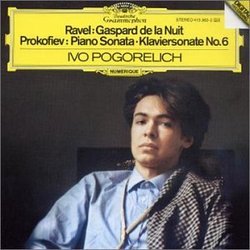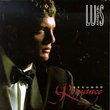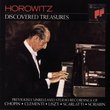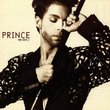| All Artists: Ravel, Prokofiev, Ivo Pogorelich Title: Prokofiev: Piano Sonata No. 6 in A / Ravel: Gaspard de la nuit Members Wishing: 0 Total Copies: 0 Label: Polygram Records Release Date: 10/25/1990 Genre: Classical Style: Number of Discs: 1 SwapaCD Credits: 1 UPC: 028941336323 |
Search - Ravel, Prokofiev, Ivo Pogorelich :: Prokofiev: Piano Sonata No. 6 in A / Ravel: Gaspard de la nuit
 | Ravel, Prokofiev, Ivo Pogorelich Prokofiev: Piano Sonata No. 6 in A / Ravel: Gaspard de la nuit Genre: Classical |
Larger Image |
CD DetailsSimilar CDs
Similarly Requested CDs
|
CD ReviewsOne of Pogorelich's best recordings M. R. Simpson | St. Davids, PA | 02/21/2008 (5 out of 5 stars) "Back in the 1980s, I remember asking a composer friend what he thought of Ivo Pogorelich. As he was a stickler for musicians observing composers' markings, I expected him to dislike Pogorelich, whose interpretations were very controversial at the time; however, to my surprise he replied that he was "undecided." Apparently, he had liked some of the recordings, but others he wasn't so crazy about. Years later, I tend to feel the same way, except that I have stronger feelings both ways--some of his recordings I really love, and would take with me to my desert island, while others I have definitely found to be more challenging. My chief complaint against Pogorelich is that he has a tendency to drag the music. I once attended a performance of Chopin's 24 Preludes at Carnegie Hall, in which he played some of the pieces so slowly, and with so many pauses, that at times the music seemed to lose all forward momentum. I mention this because listeners should be warned that he does have a tendency to do this on some of his recordings as well (although not on this one here). For example, his Brahms Intermezzi are very slow, not misguided--he definitely understands the ruminative nature of the music, but due to his slow pacing, some may feel that he compromises or retards the overall musical structure. (His Mozart Sonatas are even worse, as he approaches them in the same "romantic" manner as his Brahms.) Yet, at other times, as with his recording of Schumann's dazzling Toccata, he is absolutely incredible--and I mean, phenomenal. In fact, to my mind he is the only pianist to have ever bettered the legendary early Horowitz recording of the Toccata (previously released on the EMI label). In addition to his Schumann, I have also enjoyed his Scarlatti, Bach, Haydn, and Beethoven, and only wish that he would record more Scriabin, for which he has a special affinity. Yet, of all his recordings, it is to this recording of Ravel's Gaspard de la Nuit that I have returned most over the years, and even after repeated listening, I am still utterly transfixed by it. Simply put, it contains some of the most riveting and imaginative piano playing that I have ever heard--and my piano listening goes as far back as De Pachmann in the early 1900s (albeit on recordings, of course). One can only wonder what Ravel would have thought of it, having been--as a teacher--quite a strict taskmaster. Certainly, Ravel's students, or friends, such as Casadesus and Fevrier, play the piece more formally, and with a more authentic French piano touch and sensibility. Indeed, when this recording first appeared, I remember my girlfriend at the time--a graduate of the Curtis Institute--saying that she found the French pianist Jean-Phillipe Collard to be "more sensitive" in this piece, and that is probably true. I also recall that in the first Penquin Guide review, the reviewer didn't even award Pogorelich a full three stars. He thought that there was something narcissistic about the playing--finding his attention drawn more to the extraordinary quality of pianism rather than to Ravel's music. Yet today, many years later, this recording--along with the very fine Prokofiev 6th sonata that accompanies it--has acquired an enduring status, and is considered by many to be a true classic. While there may indeed be touches of narcissism in some of Pogorelich's other recordings--I must respectfully disagree with the Penquin Guide and say that I do not find that to be the case here. Admittedly, Pogorelich may employ a greater expressive range than some very notable Ravelians, such as Casadesus, Monique Haas, Francois, or Collard, but I would argue that the wildly imaginative nature of Ravel's writing more than justifies him doing so. And it is astonishing just how well he is able to realize--both technically and musically--the fantastical sound world of Ravel's nightmarish visions. Indeed, there are times when I feel that he has surpassed everyone in this piece, with the possible exception of Monique Haas, who I adore in this music. (I might have also mentioned Jacques Fevrier, but unfortunately he was in his eighties when he made his recording, and too old--although very brave to be playing Gaspard at all. Nevetheless, Fevrier had a special authority in this music, and I would strongly urge students of Ravel to seek out these wonderful and uniquely instructive recordings, and look past their imperfections.) If you are searching for a more recent digital performance, either to compare the Pogorelich to, or perhaps to buy as part of a complete set of Ravel's piano music (instead of the Prokofiev coupling), I would also strongly recommend either Jean-Efflam Bavouzet or Jean-Yves Thibaudet. Both pianists are excellent in this music, although I am undecided about which one I like better. However, I definitely prefer Thibaudet's performance of Ravel's Prelude. Bavouzet's rendition is beautifully played, but too broadly concieved, while Thibaudet is the only pianist other than Samson Francois to recognize the subtle jazz-like inflections within the piece (although I have never heard anyone play the Prelude more beautifully than Francois.) In addition, over the years I have also treasured a single disc of Ravel's piano music played by Mikail Rudy on the EMI label, which unlike the Pogorelich recording, was awarded a Rosette by the Penguin guide. Then again, if you don't mind decent analogue sound, you might do well to consider Jean-Phillipe Collard: not only is his set superbly well played, and thoroughly idiomatic, but it is also now attractively available at a discount price. Moreover, it is interesting to note that in one particular movement of Miroirs--I'm sorry but I've forgotten which one it is--Collard's timing is exactly the same as the composer's recording, that is, to the very second. In closing, I would be remiss if I did not add that the great Italian pianist, Arturo Benedetti Michelangeli, was also remarkable in Gaspard. My only problem is that he was never afforded a particularly good sound quality, despite having recorded the work, I believe, three times (the "Vatican" recording being the worst of the lot). And in such richly textured music, poor sound quality is a definite negative, despite the amazing stature of Michelangeli's playing. " Fabulous Pogorelich David Thierry | Chicago, IL United States | 03/02/2009 (5 out of 5 stars) "Out of the over 100 available recordings of Ravel's Gaspard de le nuit this must be one of the finest. If this was Ravel's idea of a bad dream I'll take it. It easily ranks with the most beautiful music I know. I have the estimable Vlado Perlmuter's complete recording of Ravel's music, recorded when the pianist was in his eighties and it's a marvel. Martha Argerich's recording is still a wonder. Haven't heard Ashkenazy or any others. Pogorelich may be an artist with the courage to do what he feels is right despite composer's markings and that makes for an interesting listen. I know both the Ravel and the Prokofiev rather well and haven't noticed anything amiss. Pogorelich plays with both great power and amazing delicacy. If you don't know the Prokofiev sonatas, explore them and you will be amply rewarded. I love this recording. Very highly recommended." A really special disc G.D. | Norway | 12/27/2009 (5 out of 5 stars) "Ivo Pogorelich is a controversial pianist, but I cannot imagine anyone being (overall) dissatisfied with the performances on this disc. The approach Prokofiev's sixth sonata is certainly one of extremes, using the whole range of colors and shades, but it works superbly. The allegretto movement is turned into a kind of scherzo, but a strangely subdued one, and the Valzer lentissimo is almost otherworldly in its dreamlike textures and colors, conveying an impression of a magical fire burning behind a calmly multi-colored, solemn glass painting. The reading of Gaspard de la nuit might not be a first choice - for that it is far too idiosyncratic - yet I wouldn't want to be without it. Ondine is calmly delicate but with a fiery intensity belying its surface sadness. Le gibet is quietly menacing, almost disconcertingly crystalline and ice-coated - it is probably the most intensely chilling version on disc, a performance bathed in shimmering, bleak, frozen half-lights. In comparison, Scarbo sounds fiercely but ephemereally magnificent and tumultuous, nervous and disquieting. The sound is rather on the cold side as well, but even if memories of, say, Ashkenazy are never eclipsed I wouldn't want to be without this reading. A really special disc, then, strongly recommended - especially to those who think they already know these works."
|













